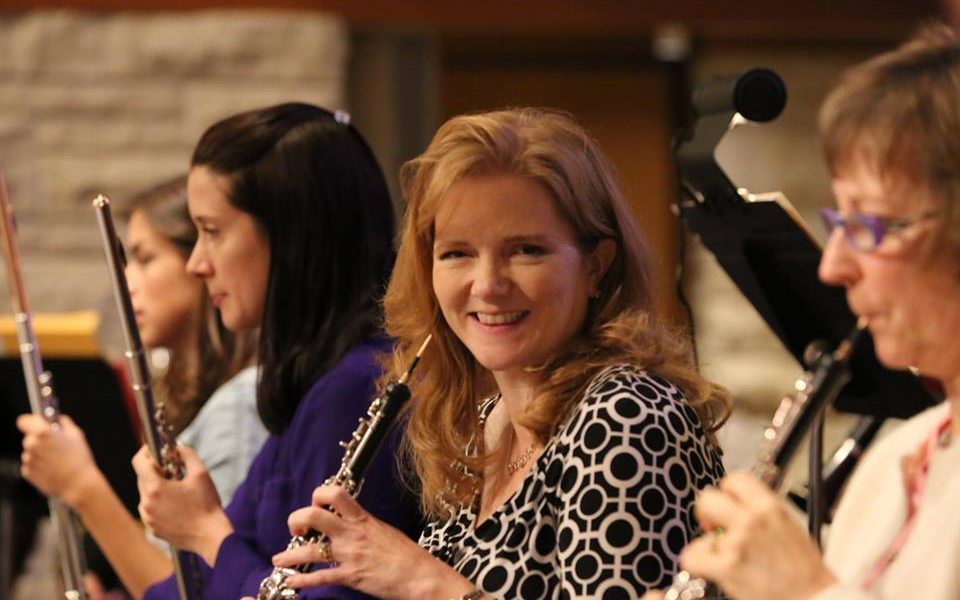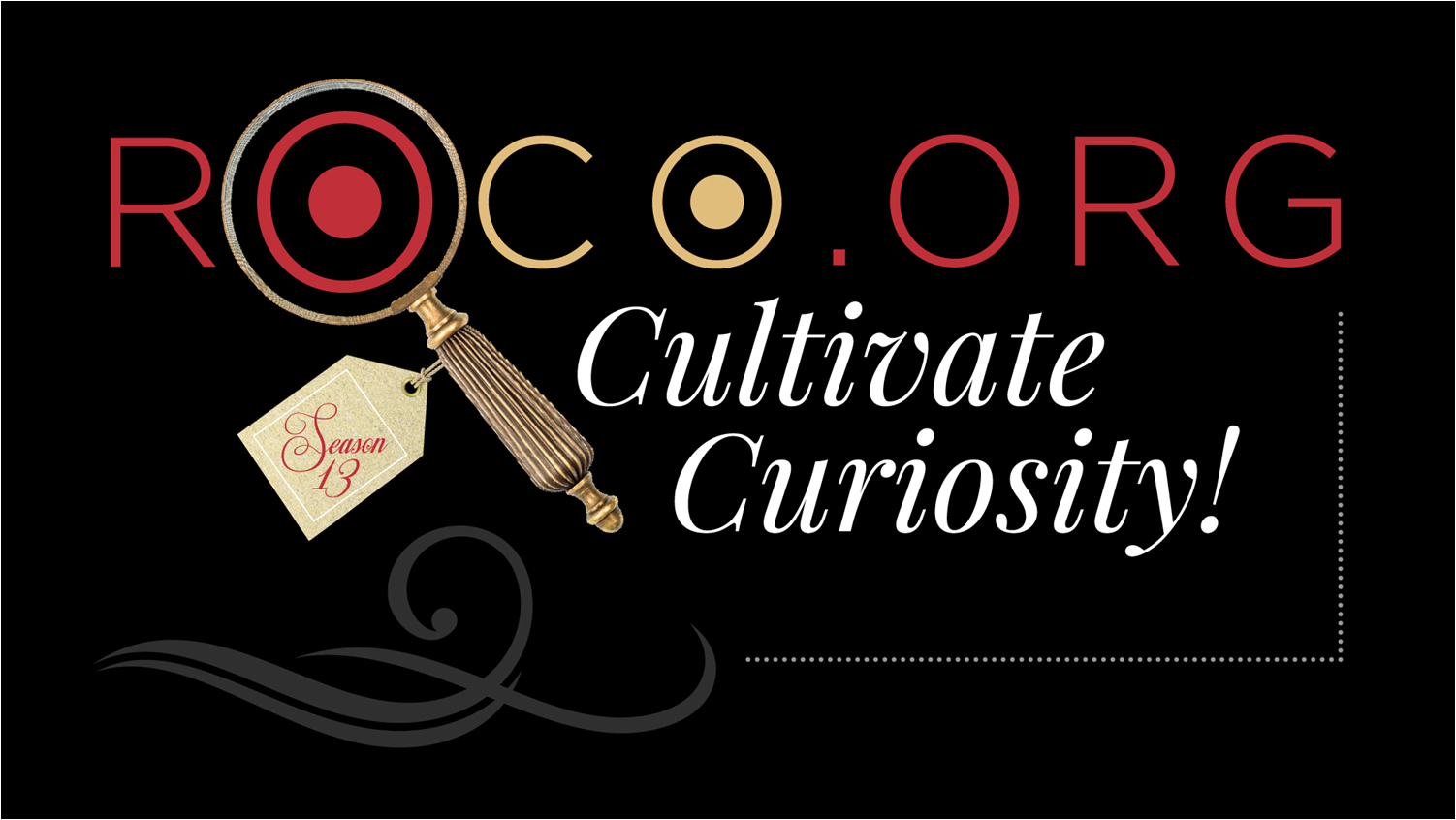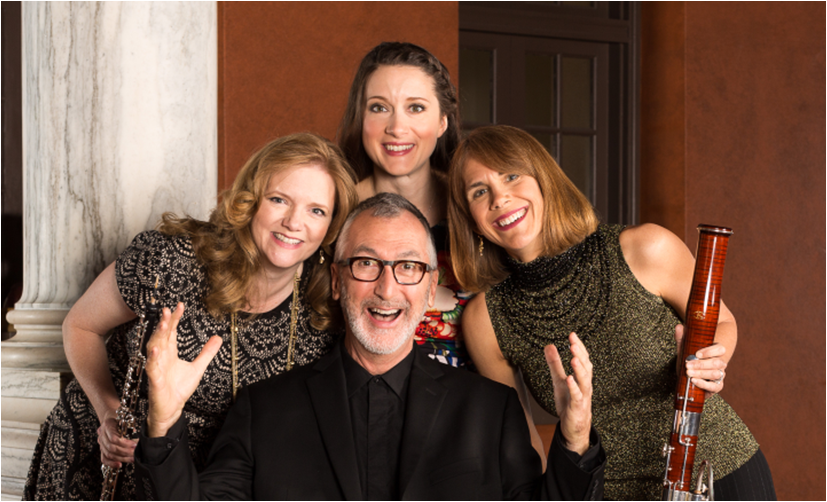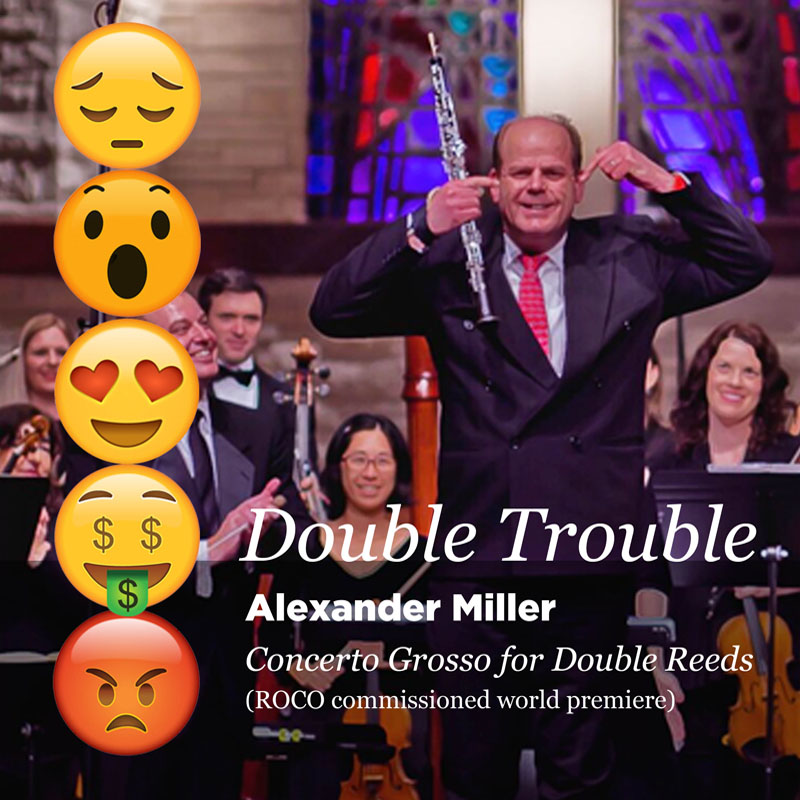 Today we’d like to introduce you to Alecia Lawyer.
Today we’d like to introduce you to Alecia Lawyer.
Alecia, let’s start with your story. We’d love to hear how you got started and how the journey has been so far.
When I founded ROCO (River Oaks Chamber Orchestra) in 2005, I was fortunate to be able to build something from the ground up. I was not hired into a situation where innovating in the classical music world meant needing to challenge the status quo. Instead, I was able to start fresh. Having previously been a part of three startup groups that each sought to engage audiences in various ways afforded me some unique insights. As a result of those experiences, I was able to develop my own vision for building a successful and sustainable model that would focus on genuine connections between the musicians and the audience.
I had gone to Juilliard for my Masters, and SMU for Bachelors, but orchestral positions are tenured lifetime jobs. You have to wait for someone to retire and then there might be only two openings per year in the whole US for an oboist. However, living in Houston, I found many unique spaces to engage with and many ways to use my training. I was a professor at UH Moores School, a members of three start up music groups, a classical DJ for KRTS and also a docent for the Holocaust Museum and a Singer in nursing homes through Junior League.
When St. John the Divine, my church, was going to renovate and I saw the drawings, I knew it was going to be a perfect place for a chamber orchestra. It became a “Why not?” orchestra and I felt safe to take great risks with great people.
Based on my personal relationships, I selected unique musicians to become a part of ROCO. In addition to being exceptional artists, it was critical that ROCO performers had both the right personality and sensibilities to be able to connect with our community in authentic ways. I wasn’t focused as much on innovation as I was on what worked and what didn’t. I developed a framework that allowed me to try different ideas that were also fiscally sustainable.
The most surprising discovery is that, after 11 years with ROCO, I am convinced that every situation or problem in the arts can be solved by working on relationships: musician to listener, musician to musician, board to musician, organization to community, and so on. Gathering people also for the staff and board of the organization are the other legs of the tripod of a great organization. We make sure everyone is valued. We provide a 360° view of the organization and its inner workings. We even have a “No Jerks Allowed” policy written into our by-laws, insisting instead on authentic people and authentic experiences.
Has it been a smooth road?
Our biggest obstacle is communicating who and what ROCO is. With 31 of our 36 concerts this season being chamber music with 1-5 players each concert, and the other five when all 40 musicians get together, we really are more of a flexible group of musicians. And with collaborations for each of our concerts, we are even more of an experience than a concert and a conversation in music than an audience witnessing a performance.
We have moved toward simply ROCO and then putting different adjectives with those letters to truly describe who we are:
Riveting
Original
Creative
Open to All
Risk-taking
Outstanding
Curious
Optimistic
So, as you know, we’re impressed with ROCO (River Oaks Chamber Orchestra) – tell our readers more, for example what you’re most proud of as a company and what sets you apart from others.
ROCO has been called an “arts disrupter” and a “trailblazer.” Our mission is to Shape the Future of Classical Music through Energizing, Modernizing, and Personalizing the Orchestral Experience. How do we do this?
Energize
ROCO stakeholders challenge every aspect of the concert experience. We turn tradition on its head, starting many concerts start at 5pm and ending by 7pm, thus making it more convenient for multi-generational families to join us and singles to plan more into their evenings. Our house lights are on throughout the entire concert, allowing audiences to read our engaging, boundary-pushing programs. The concert selections are not printed in order. Instead compositions are listed alphabetically so that the conductor or musician calls what is next from the stage. As pieces are introduced, audiences are able to engage with musicians in that moment, instead of making assumptions about what they think they don’t know. We also publish pronunciation guides for composers’ names, as well as timings for the pieces. If a person knows how long a piece is, he or she can absorb the music much better – and know how much longer it is if he or she dislikes the piece!
Many people today don’t know how to pronounce Mozart, nor do they know much of his music. Instead of this being a concern, we at ROCO see this is a fantastic entrepreneurial opportunity. All pieces of music and all composers are possible to program, and both well-known and little-known composers can play on an even field.
Our popular ROCOrooters music education and childcare program for kids 2 months to 10 years runs in tandem with our 5pm Saturday concerts. A professional music teacher leads the 3-10 year olds in a lesson emphasizing both the theme of the evening and the piece the older children will hear, then takes the 5-10 year olds into the concert hall to hear that piece live. Afterward, all ROCOrooters participants are invited to stay with licensed childcare workers for pizza and movies until 10:30 pm, allowing parents to enjoy a date night. Sometimes we joke that ROCO is in the business of “saving marriages, one concert at a time!”
As part of our Creative Collaborations programming, our Annual Día de los Muertos Musical and Literary Ofrenda is a five-way collaboration with ROCO, Inprint (literary organization) authors, artists from Lawndale Arts Center, members of Houston Hispanic Forum (Hispanic advocacy group), original compositions from Musiqa (new music composers and presenters) – all supported by the Mexican Consulate.
Our yearly Peter and the Wolf performances at the Houston Zoo, in collaboration with InterACTive Theater Company, raises awareness about the Zoo’s conservation projects. This year we are delighted to repeat the performance at Texas Children’s Hospital.
ROCO also understands how important it is for musicians to smile and create joy on stage, a hallmark of ROCO performances that is, unfortunately, unusual in classical music.
Modernize
Classical musicians are not necromancers. We are live performers who share an “in the moment” conversation with the audience. ROCO has a deep commitment to new music, having undertaken fifty-four world premieres and commissions, with three more slated for this 2016-17 season. In order to give composers multiple performances of their works, we co-commission some of our new works, partnering with groups such as the New Century Chamber Orchestra and St. Paul Chamber Orchestra.
Decisions to incorporate technology into the concert experience are never made just for the sake of being ‘new.’ Instead, we seek and implement new technologies to enhance the relationship between musician and listener, all while continuing our conversation with our audience. One way we incorporate technology into our performances is by offering world-wide live streaming of each “In Concert” performance through our website. This past April, we hosted 135 individual screens from as far away as Sweden, each of which had multiple people watching. The live-stream video is kept as an archive and then shared in DVD format with partnering hospitals and nursing homes. This allows them to view the performance any time!
We also were the first professional orchestra to debut the EnCue by Octava app, which delivers real time commentary to audience members via their smart phone or tablet, all while a piece is being performed. Although the app was developed to offer program notes, ROCO saw an opportunity to include commentary from the performing artists themselves. Delivered at specific moments during the work, along with photos and names of the commenting musicians, the messages are timed so that they enhance the concert experience. The app, which uses dark screen technology, doesn’t disturb those who might wish to take in the music without it. Since our house lights on, the juxtaposition of the engaging technology into live performance doesn’t become a nuisance. The first time we used the app, there were 65 individual screen uses, with user ages ranging from 13-91 years old. Many of our older patrons were very excited to test the new platform. In fact, the most enthusiastic one was the 91 year old; she came an hour early to the hall just to be sure she downloaded it and could operate it without distraction!
Personalize
The ROCO brand is dependent on our musicians and living composers, not dead ones. Music is a living language in which the composer becomes the matchmaker between musician and listener. We market and present our people as individuals, because it matters that Brook Ferguson is our principal flutist and Richard Belcher is our principal cellist. Even our commissions are personal. Our principals are our featured soloists and are offered the opportunity to not only request commissions, but select their preferred composer. The musicians are all individual owners of our collective artistic product, and they have input on all aspects of the performances. Our business model is based upon relationships, not transactions. The typical churn or ‘moves management’ that characterizes growth strategy for orchestras doesn’t apply at ROCO. Through our investor model of fundraising, we have people jump boldly into the “deep end of the pool” with us. If they donate a certain amount, they get tickets to our season instead of buying subscriptions. They feel a true ownership in the orchestra.
Individual musicians are sponsored annually, either by individuals or by groups. In fact, patrons can group together to sponsor a chair, with each donor giving just a little. Some of our musicians even have groupies!
Many of these groupies are over 65; our older audience members have boundless interest and enthusiasm, even (especially!) for the commissions. However, our audiences do skew younger than those of most ensembles, both because of ROCOrooters and because of the wide variety of venues in which we play. Thanks to the breadth of our mission, we have cultivated a multi-generational audience. ROCO appeals to life-long learners and seekers of new experiences, continually stimulating new musical conversations and ever-expanding knowledge.
ROCO has a place, some music, a person, a moment, with which you can connect. You are a friend we haven’t met yet, and I personally look forward to our musical conversations with you!
Let’s touch on your thoughts about our city – what do you like the most and least?
Maverick Houstonians, in all of the best ways willing to take risks on new things and with new people. We are friendly and uber multi-cultural with food and festivals reflecting our whole world. Raising a family is welcome here and inspiring. However, the people themselves, those who were born here or those who continue to arrive, are the best thing about our city. One of our friends who lost their entire house in the Harvey flood said “Even though Houston is the most diverse city in our nation, there are only two kinds here: wet and dry, and we are all family.”
The heat is second on my list of dislikes about Houston. The first relates to it: Why do we Texans have to use soooo much air conditioning? It isn’t normal, even as a lifelong Texan, to have to always bring a sweater everywhere in the sweltering middle of August!
ROCO commissioned Anthem of Hope: Houston Strong as a piece that reflects the courage and love of the people of Houston: https://soundcloud.com/rocoreplay/anthem-of-hope-houston-strong
Pricing:
- Many concerts are free
- Tickets max pricing at $45 with most being $15-35
Contact Info:
- Website:roco.org
- Phone:7136652700
- Email:[email protected]
- Instagram:https://www.instagram.com/rocohouston/
- Facebook:https://www.facebook.com/rocohouston/
- Twitter:https://twitter.com/rocohouston
- Other:https://soundcloud.com/rocoreplay/




Image Credit:
Joel Luks, Lynn Lane, Blueprint Media, Teresa Southwell
Source: Voyage Houston Staff

Leave A Reply